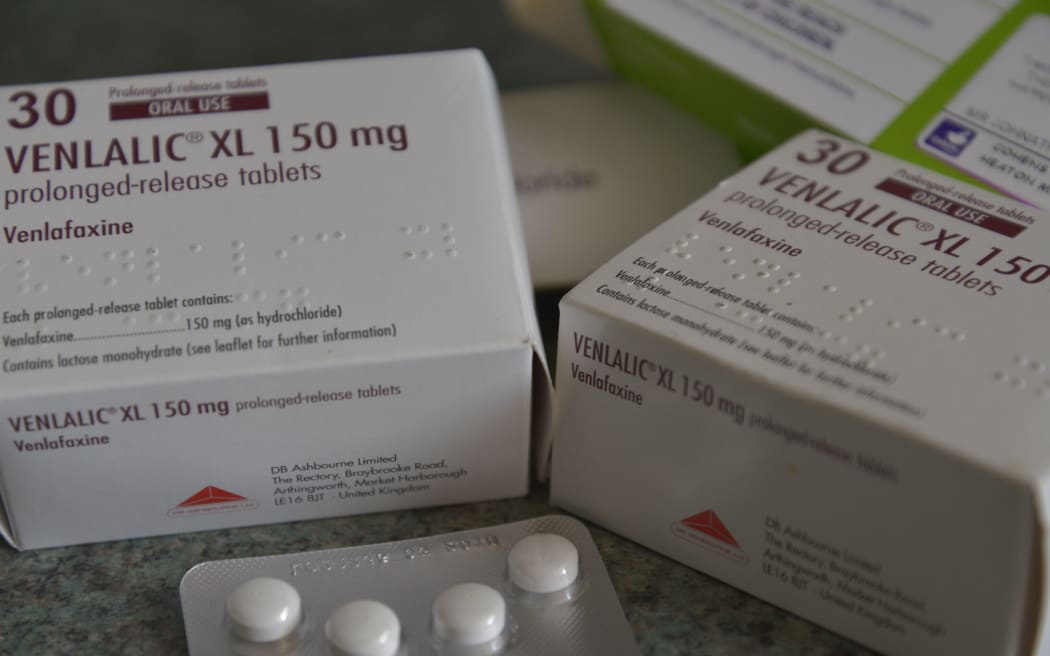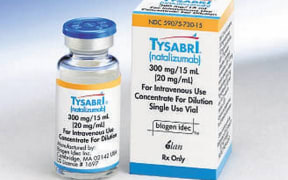Last year, the Pharmaceutical Management Agency in New Zealand (Pharmac) stopped subsidising two brands of antidepressants, Arrow Venlafaxine and Effexor XR, and replaced them with a cheaper brand, Enlafax.

Venlafaxine, a medication for the reduction of the symptoms of anxiety and depression Photo: AFP
Some patients, who said they suffered adverse effects after changing the brand of antidepressants, had applied for special funding for their old brand, but been declined.
Under the Official Information Act, RNZ found 28 applications to Pharmac for special funding for antidepressants that were no longer subsidised.
One of those applications was withdrawn, the other 27 were rejected.
Heather Williams said she had been taking the old brand for years with no problems, but noticed she was angry and irritable within weeks of changing medication.
"The anger was quite severe and it didn't seem to correspond or relate to anything that was going on and then my mood dropped and I started having thoughts of self-harm and suicide again, which hasn't been there for a very long time," she said.
Ms Williams said her first application to Pharmac was declined and she was still waiting to hear back about her second application.
She had since set up a group online for others experiencing negative side effects and had been researching ways for people to get their medication subsidised.
It was only through speaking to Pharmac that she became aware of the Named Patient Pharmaceutical Assessment (NPPA) process, through which patients can apply for medicines they need that are not funded by Pharmac.
Sarah Macrae said she also noticed a difference from changing antidepressant, but didn't think anything of it at first, as she was advised the medication would act the same.
"I started to feel a bit low. I assumed it was just stresses in my life, dealing with four toddlers, but by mid August I had a massive break-down, anxiety attacks, couldn't stand any noise.
"I was stressed, angry, my spacial awareness had gone and I crashed my car three times and I've never done that in 23 years prior.
"There were so many signs but I wasn't looking or paying attention to them," she said.
Ms Macrae said when she finally spoke to her GP about switching back to the old medication, he wasn't even aware she could apply to Pharmac for special funding.
"He monitored me for six weeks until I was back stable.
"During that time I saw him maybe three times and each time we were talking about the cost of Effexor and having to pay for it and he kept saying to me he didn't know how to get this funded, there might be a way, but he didn't know how," she said.
Ms Macrae recently found out about applying to Pharmac for special funding, but was declined.
She thought it was better to just pay the $50 for the medication herself, rather than pay to see a doctor and get another application declined.
Pharmac director of operations Lisa Williams said all special funding requests were assessed on individual merit, but the 27 applications had not met core policy principals.
"People need to have tried all existing funded alternatives first before they're approved for funding for an unfunded medicine and their clinical circumstances need to be exceptional," she said.
Ms Williams said she was surprised people didn't know about the NPPA process that enables patients to receive funding for non-subsidised medication.
"Maybe we need to do some more to promote that process... we do get about 1400 NPPA requests every year," she said.
Pharmac would not consider changing the funding unless the regulator, MedSafe advised them of a reason to be concerned.
The advice they have received is Enlafax works the same as the previously funded medications, Ms Williams said.





